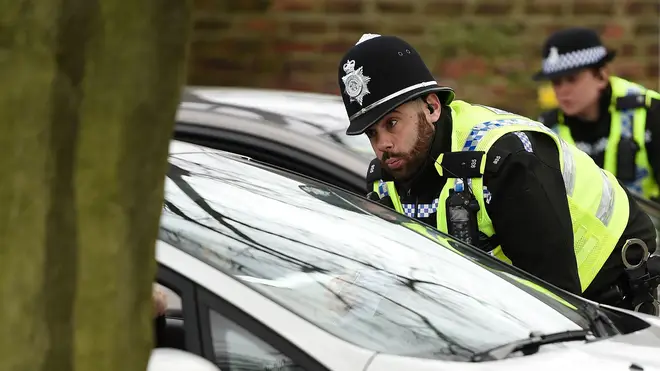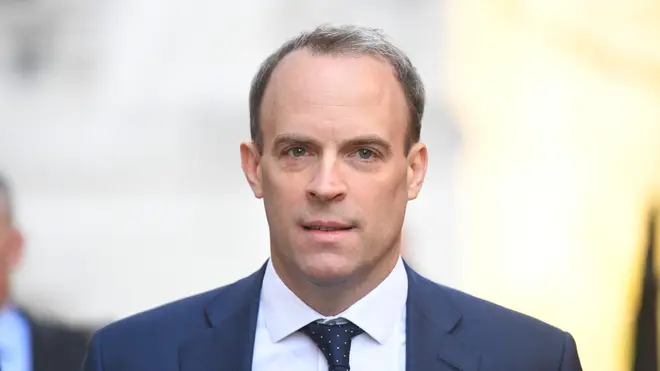
Clive Bull 1am - 4am
31 March 2020, 12:08

Some of the UK's police forces have been using new powers enshrined in the Coronavirus Bill too aggressively and are acting like in a "police state", critics claim.
Police have been given extensive powers to impose coronavirus lockdown measures. Anyone breaking the rules can be arrested or fined £60 and up under the new rules that prevent non-essential travel and keep people inside.
But critics have claimed some police have been "over-zealous" after one force said it was prosecuting people for "going to the shops" with other members of the same household.
READ MORE: The latest coronavirus updates LIVE
Former Supreme Court judge Lord Sumption heavily criticised Derbyshire police for stopping people exercising in the Peak District and warned that such behaviour risks plunging Britain into a "police state".
He said the police had no legal power to enforce "ministers' wishes" and people should not "resign their liberty" to over-zealous officers.
The judge added: “The behaviour of the Derbyshire police in trying to shame people in using their undoubted right to take exercise in the country and wrecking beauty spots in the fells so people don’t want to go there is frankly disgraceful.
“This is what a police state is like, it is a state in which a government can issue orders or express preferences with no legal authority and the police will enforce ministers’ wishes."
Read more: Are the police stopping people who go outside during the Covid-19 lockdown?

It came after Derbyshire police dyed the water of a lagoon black to deter tourists from visiting.
Although, the judge added that on the whole, most police forces have used their newly assigned power proportionately.
Metropolitan Police assistant commissioner Neil Basu wrote in the Daily Telegraph that forces were being asked to use powers he "never imagined a British police officer would be asked to use".
He said: "Everyone in policing is acutely aware that how we police this pandemic will be remembered for many years to come.
"Preserving the trust and confidence of the public by policing by consent is our mantra, and has been since 1829.
"There will be a period of readjustment to our new responsibilities, which no police officer ever thought they would have.
Read more: How does the coronavirus home testing kit work and when can I buy one?

"Not every police response will be surefooted and some will spark healthy debate. We should not judge too harshly."
Mr Basu asked officers to listen to Britain's most senior officers, Metropolitan Police commissioner Dame Cressida Dick and Martin Hewitt, chairman of the National Police Chiefs' Council (NPCC), that "persuasion and education to do the right thing is our primary goal" rather than punishment.
Legal and human rights experts have described Warrington Police's actions as "dystopian" after offers summoned people to court for supposed offences such as "returning from parties".
Critics say these measures were not justified by the new legislation and even risked efforts to combat coronavirus.
Transport Secretary Grant Shapps told Sky News that there were some "individual examples" where police acted "further than they should have gone".
Foreign Secretary Dominic Raab backed officers "doing a very difficult job in unprecedented circumstances" and encouraged officers to use "common sense" while interpreting the law.